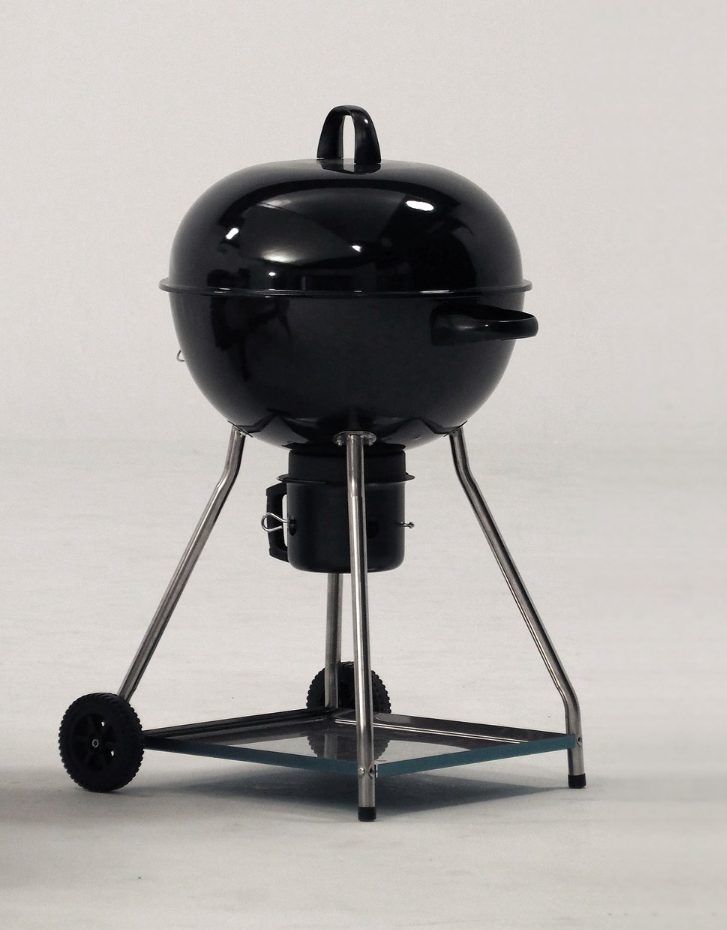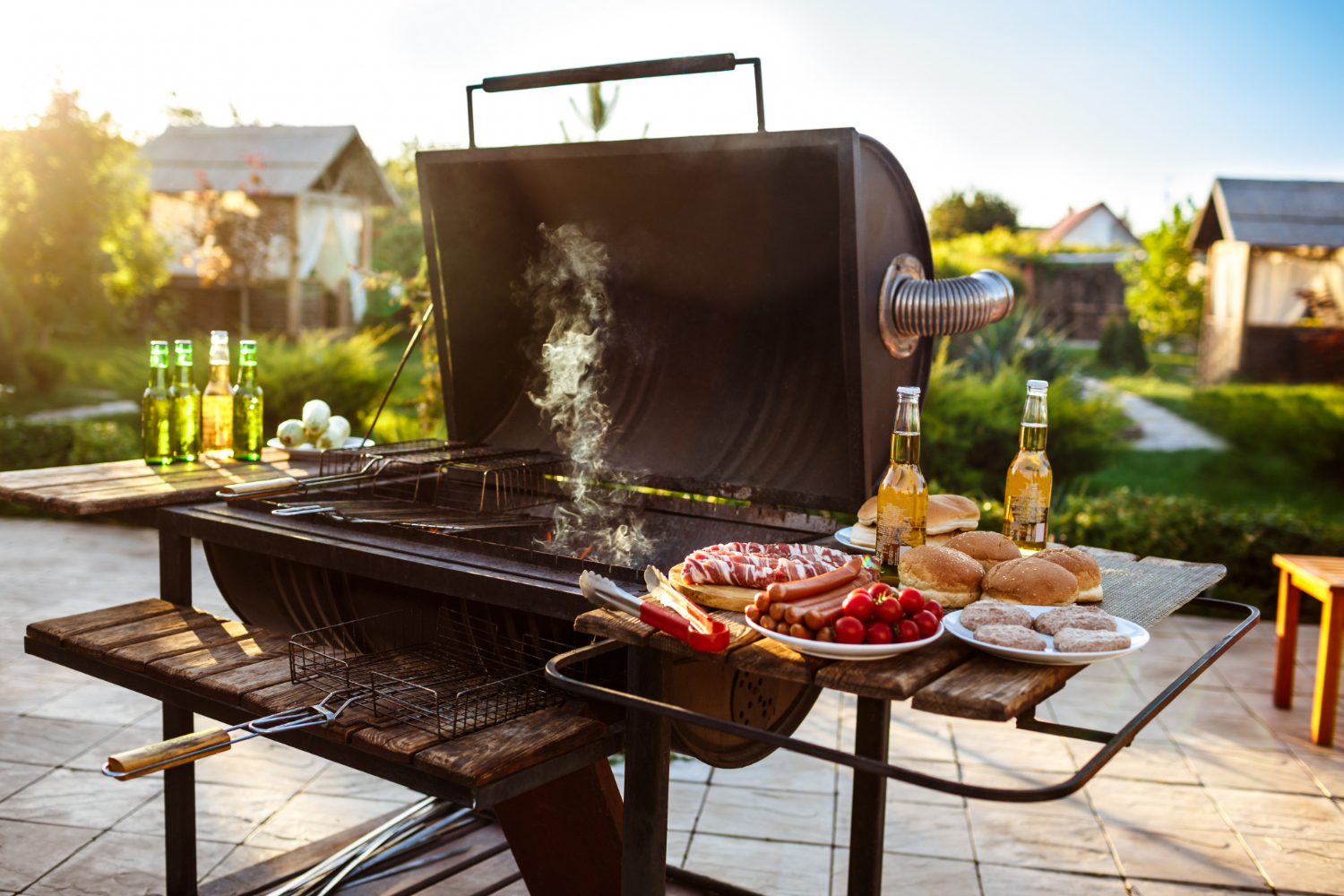To have the best barbecue experience, you should use the correct grill. There are many options in the market, so the vast majority of outdoor BBQ enthusiasts prefer charcoal grills. However, if you start with grilling, which would be better for you: kettle or barrel grills?
People feel the oven-like design of kettle and barrel-shaped barbecue grills reflects the spirit of their food. Both of these shapes best depict down-home, Southern-style backyard barbecues. To someone who has earned her bragging rights, seeing a kettle or barrel-shaped grill indicates that the grill owner is very serious about barbecue.
Some differences could sway your decision. Let’s examine the more essential options so you can determine which grill best suits your needs.

Are Kettle BBQs Any Good?
Portable round or oval grills called kettle grills are also available. During the 1950s, George Weber, a sheet metal worker in Chicago, introduced the round-shaped grills. Ed Fischer, an Atlanta chef, popularized oval-shaped grills after inventing green-colored egg-shaped grills based on clay pot cooking techniques used in Asia.
Enamel-coated steel is commonly used to construct round kettle grills with a half-circle bottom and a removable half-circle lid. In addition, it has a circular grill grate. In oval kettle grills, like the green egg, the enamel-coated cast-iron grates are made of stainless steel, and the flip-top lids are made of steel.
Because of their direct heat capabilities, kettle grills are often used for cooking foods that have been charred by placing them directly over or indirectly using the “low and slow” cooking method. Charcoal, wood chunks, and chips fuel both kettle and oval grills, while propane is required for gas grills.
Both wood pellet and coal or gas-fired grills find themselves at the top of the list. A charcoal grill with a kettle design allows airflow to be controlled via two vents at the top and bottom of the cooking surface to maintain cooking temperature.
On a barrel grill, you have more room to cook your meat, which means you can grill a large amount of meat at one time. Therefore, grills for at-home grilling, events, commercial, and mobile food-service applications are well-suited for their intended use.
If you want an extra-large barrel grill, you can get one that lets you use wood logs, chunks, and chips in addition to charcoal. Barrel grills are very common in commercial settings because of this.
In other words, other than that, the barrel grill is effective when the weather is warm, particularly in the summer, because the barrel grill does not retain heat well.
Are Barrel Grills Better?
Barrel grills tend to be larger than kettle grills, but the actual measurements between individual models can vary. This works well for serving a lot of people since the surface is rectangular.
However, barrel-shaped grills gained popularity because of an entrepreneurial vision. Discarded oil drums were used as the primary design material for the early barrel-shaped grills, which were then welded, hinged, and repurposed into barbecue grills. Heavy-gauge aluminum screens were frequently used as grill grates. To form the grill stands, the pipe fittings were used, and the drum was tilted horizontally.
It is possible to locate locally specialized artists who focus on building custom oil drum grill stands today. Hickory, apple, and mesquite are all good smoking woods.
The classic, down-home barrel grill shape is no longer associated with oil drums repurposed for grilling. As well as ready-to-assemble portable barrel-shaped residential grills, commercial grill manufacturers also offer ready-to-assemble portable barrel-shaped portable grills for residential use.
Barrel grills, in general, have an offset feature, meaning there are more complex overall dimensions. Therefore, the simpler your cooking experience is, the better the kettle design will be.
A barrel grill with an offset smoker, however, gives you more versatility. We should focus on your unique needs and preferences best rather than settling on the ultimate best.
What Should I Buy?
Similarities
- Although propane and natural gas grills are popular among those who prefer charcoal over gas or charcoal, kettle and barrel grills are among the most popular designs for charcoal grills in the home.
- These products have a classic and iconic appearance that represents what happens in your home when you use your grill.
- Black is the most common choice of exterior color for kettle grills, converted oil drums, and barrel-shaped grills ready to assemble.
- Although most kettle and barrel-shaped grills use either wood or charcoal as a fuel, the most common fuels for these kinds of grills are either wood or charcoal.
Differences
- Home grillers typically use kettle grills for cooking for small groups of people in their own homes. On barrel-shaped grills, the surface area of the grill is larger. So you can use them in at-home grilling, on-site, commercial, and mobile food service applications work out in their favor.
- The weight is noticeably higher than a kettle grill, weighing 60 or more pounds versus 25 to 30 pounds for a typical kettle grill. The size difference between these two models may be insignificant. Still, it’s worth noting that the barrel-style grill will be heavier due to its more prominent design.
- In addition to the charcoal, wood chunks, and chips, these grills have large interior firebox chambers large enough to accommodate logs. While most commercial grills are wood-fired and not fueled by propane, some exceptions can be found.
Select the best option for you. Traditional kettle designs are almost always preferable because you only need to smoke occasionally. Yet, barrel-style grills are a popular choice among consumers because they can cook various foods. Asking which one you prefer, a kettle grill or a barrel grill often comes down to the type of cooking you choose.

